http://www.rhci-online.net/radiogram/radiogram.htm
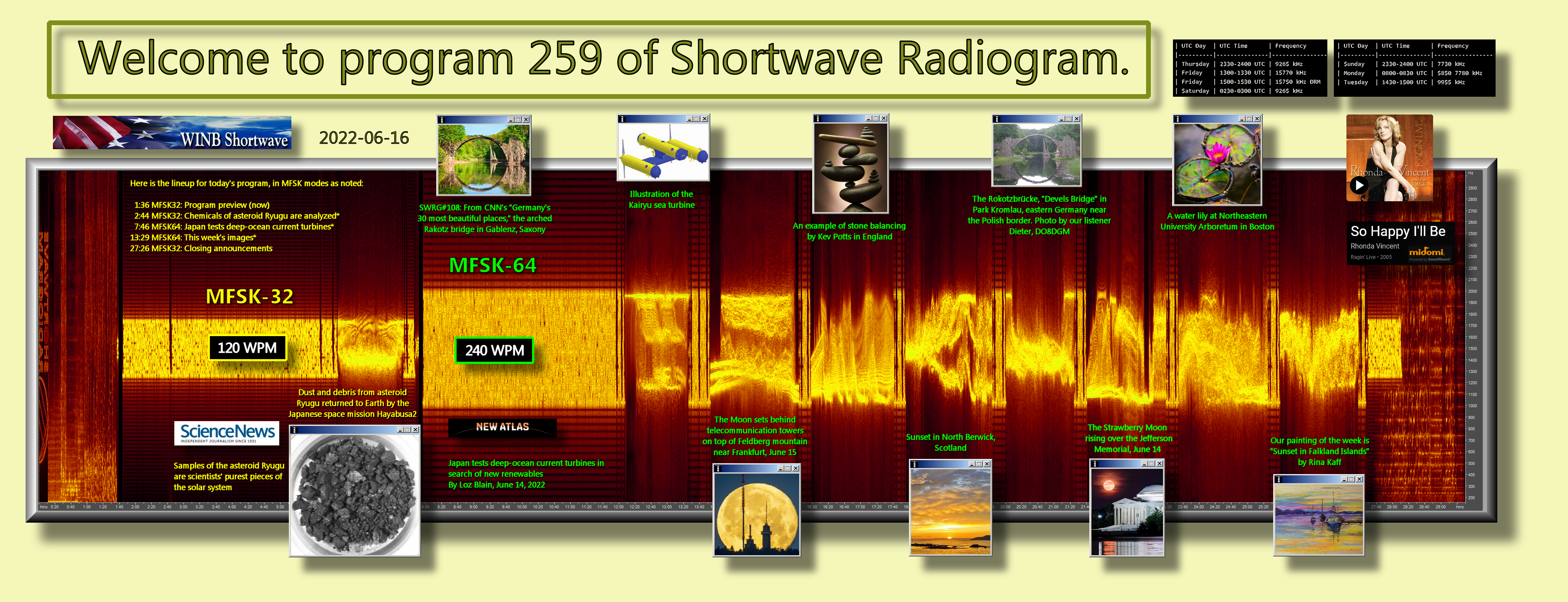
http://www.rhci-online.net/radiogram/radiogram.htm

RSID: <<2022-06-16T23:31Z MFSK-32 @ 9265000+1500>>
Welcome to program 259 of Shortwave Radiogram.
I'm Kim Andrew Elliott in Arlington, Virginia USA.
Here is the lineup for today's program, in MFSK modes as noted:
1:36 MFSK32: Program preview (now)
2:44 MFSK32: Chemicals of asteroid Ryugu are analyzed*
7:46 MFSK64: Japan tests deep-ocean current turbines*
13:29 MFSK64: This week's images*
27:26 MFSK32: Closing announcements
* with image(s)
Please send reception reports to radiogram@verizon.net
And visit http://swradiogram.net
We're on Twitter now: @SWRadiogram
From Science News:
Samples of the asteroid Ryugu are scientists' purest pieces of
the solar system
Analysis reveals the asteroid was evolving about 5 million
years after the solar system's start
By Liz Kruesi
June 9, 2022
Samples of the asteroid Ryugu are the most pristine pieces of the
solar system that scientists have in their possession.
A new analysis of Ryugu material confirms the porous rubble-pile
asteroid is rich in carbon and finds it is extraordinarily
primitive. It is also a member of a rare class of space rocks
known as CI-type, researchers report online June 9 in Science.
Their analysis looked at material from the Japanese mission
Hayabusa2, which collected 5.4 grams of dust and small rocks from
multiple locations on the surface of Ryugu and brought that
material to Earth in December 2020. Using 95 milligrams of the
asteroid's debris, the researchers measured dozens of chemical
elements in the sample and then compared abundances of several of
those elements to those measured in rare meteorites classified as
CI-type chondrites. Fewer than 10 meteorites found on Earth are
CI chondrites.
This comparison confirmed Ryugu is a CI-type chondrite. But it
also showed that unlike Ryugu, the meteorites appear to have been
altered, or contaminated, by Earth's atmosphere or even human
handling over time. "The Ryugu sample is a much more fresh
sample," says Hisayoshi Yurimoto, a geochemist at Hokkaido
University in Sapporo, Japan.
The researchers also measured the abundances of manganese-53 and
chromium-53 in the asteroid and determined that melted water ice
reacted with most of the minerals around 5 million years after
the solar system's start, altering those minerals, says Yurimoto.
That water has since evaporated, but those altered minerals are
still present in the samples. By studying them, the researchers
can learn more about the asteroid's history.
https://www.sciencenews.org/article/asteroid-ryugu-ryugu-hayabusa2-meteorite-sample-carbonaceous-chondrite
Image: Dust and debris from asteroid Ryugu returned to Earth by
the Japanese space mission Hayabusa2. ...
Sending Pic:295x277;
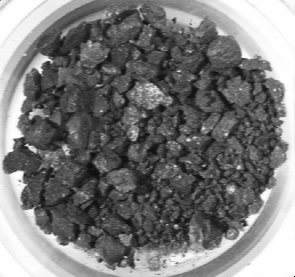
Shortwave Radiogram now changes to MFSK64 ...
RSID: <<2022-06-16T23:37Z
MFSK-64 @
9265000+1500>>
This is Shortwave Radiogram in MFSK64
Please send your reception report to radiogram@verizon.net
From New Atlas:
Japan tests deep-ocean current turbines in search of new
renewables
By Loz Blain
June 14, 2022
Renewable energy potential is not distributed evenly. Japan, for
example, has sub-par solar potential and nowhere near the wind
potential of Western Europe or the United States. It's also
currently ranked fifth in the world for electricity consumption,
and adding nuclear power will be politically difficult in the
wake of Fukushima, meaning that its race to zero emissions will
require more innovation than most if it wishes to maintain energy
independence.
One thing Japan does have is lots of coastline and control over
the world's sixth-largest territorial waters, making ocean-based
alternative energy ideas particularly attractive.
Tidal flow generators – like the 2-MW Orbital O2 currently
exporting power to the grid off Scotland's Orkney islands – might
offer reliable base load generation, but Japan sees so much
shipping traffic through areas with suitable tidal potential that
the idea's unlikely to work.
So instead, Japanese company IHI and the New Energy and
Industrial Technology Development Organisation (NEDO) have been
experimenting with another reliable source of energy that could
potentially deliver exceptionally reliable energy if tapped:
ocean currents.
Ocean currents typically offer a slower harnessable flow than
well-chosen tidal flow locations. The O2, for example, can
deliver its rated power output with water speeds between 2.5-4.5
m/sec. The Kuroshio ocean current, on the other hand, flows at
more like 1-2 m/sec. But it's enormous, up to 100 km (62 miles)
across in some places, and it's estimated to move a staggering 65
million cubic meters of water per second at its strongest point,
just off the South-East coast of Japan.
So there's potential there to hook up vast arrays of ocean
current turbines, sharing transmission lines, and siphon off a
portion of an energy source IHI estimates at around 205
gigawatts. IHI and NEDO have been working on this opportunity
since 2011, and since 2017, the companies have had a small-scale
100-kilowatt tidal generator in testing.
This demo generator, called Kairyu, is anchored to the ocean
floor much like the Orbital O2. But where the O2 harnesses the
flow just a couple of meters under the surface, and switches
directions with the tides, Kairyu is kept steady at around 50 m
(164 ft) under the waves. That's not the most efficient place to
harvest ocean current energy – closer to the surface would be
better, says IHI, but the area experiences typhoon conditions
that can result in waves more than 20 m (65 ft) high, so keeping
them deeper underwater is primarily a safety consideration.
Each of Kairyu's three cylindrical floats is around 20 m (66 ft)
long, and the whole thing is about that wide as well. The outer
two floats sport variable-pitch twin-blade turbine rotors with a
diameter of 11 m (36 ft), set to counter-rotate to balance out
torque forces. Each of these rotors spins a 50-kW generator.
Water pressure sensors keep the machine appraised of its depth,
and it's able to autonomously manage its position with a buoyancy
adjustment system. Likewise, current speed sensors inform
Kairyu's decisions on blade pitch, which is managed for maximum
efficiency, and other position sensors allow it to control its
pitch, yaw and roll angles using attitude control devices on the
rear ends of the floats. Where maintenance is required, Kairyu
simply raises its buoyancy and floats to the surface, and can be
worked on there – so it doesn't need articulating arms like the
Orbital O2.
With Kairyu successfully tested over a period of some 3.5 years,
IHI says it hopes to scale this thing up to 2 MW, with blades
some 40 m (132 ft) long, for a full-scale production version that
could be deployed in serious numbers. The target launch is 2030,
and according to Bloomberg, IHI expects ocean current energy
prices to be close to competitive with Japanese solar energy
prices. Indeed, it could be a strong solution, says the company,
as a low-cost energy source for remote islands as it ramps up.
The key is, and always will be, money. If this thing works
economically at scale, it could provide an exceptionally reliable
green energy source that could make a huge contribution to
Japan's decarbonization efforts. Where solar in Japan operates at
a typical capacity factor of 15 percent – that is, over the
course of a year, it tends to generate about 15 percent as much
energy as it would if the conditions were always perfect – and
onshore wind operates at a capacity factor around 29 percent,
ocean current energy operates at a 70 percent capacity factor,
which is nearly up there with coal-fired power plants at 80
percent.
What's more, climate change research predicts that as the planet
warms up, the Kuroshio current will become stronger, potentially
improving yield from these devices over the coming decades.
Either way, the potential is enormous, and this project
represents yet another ingenious way humans are trying to extract
power from nature with the minimum possible adverse consequences.
Source: IHI
https://newatlas.com/energy/ihi-nedo-kairyu-ocean-current-turbine/
Image: Illustration of the Kairyu sea turbine ...
Sending Pic:206x128C;
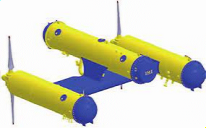
This is Shortwave Radiogram in MFSK64
Please send your reception report to radiogram@verizon.net
This week's images ...
The Moon sets behind telecommunication towers on top of Feldberg
mountain near Frankfurt, June 15.
https://bit.ly/3QpcfVi ...
Sending Pic:195x188C;
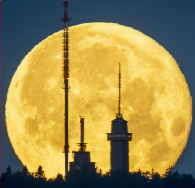
An example of stone balancing by Kev Potts in England.
https://bbc.in/3xt3P6M ...
Sending Pic:168x204C;

Sunset in North Berwick, Scotland.
https://bbc.in/3NWrAen ...
Sending Pic:183x196C;
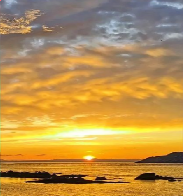
|
The Rokotzbrücke, "Devels Bridge" in Park Kromlau, eastern
|
http://www.rhci-online.net/radiogram/SW_Radiogram_2019-07-13.htm#Rakotz From CNN's "Germany's 30 most
beautiful places," the arched
|
The Strawberry Moon rising over the Jefferson Memorial, June 14.
https://bit.ly/3zGZyz7 ...
Sending Pic:165x199C;

A water lily at Northeastern University Arboretum in Boston.
https://bit.ly/3NZxWcL ...
Sending Pic:199x185C;

Our painting of the week is "Sunset in Falkland Islands" by Rina
Kaff.
https://bit.ly/3mUOjeM ...
Sending Pic:202x161C;
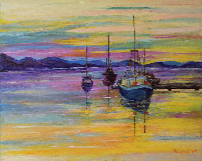
Shortwave Radiogram returns to MFSK32 ...
RSID: <<2022-06-16T23:57Z
MFSK-32 @
9265000+1500>>
This is Shortwave Radiogram in MFSK32 ...
Shortwave Radiogram is transmitted
by:
WRMI, Radio Miami International, wrmi.net
and
WINB Shortwave, winb.com
Please send reception reports to
radiogram@verizon.net
And visit http://swradiogram.net
Twitter:
@SWRadiogram or twitter.com/swradiogram
I'm Kim Elliott. Please join us for the next Shortwave
Radiogram.
|
Closing music SWRG#259: https://www.midomi.com/Track?trackID=100773398140445351&song=so-happy-i%27ll-be Rhonda Vincent - So Happy I'll Be Ragin' Live • 2005
|
http://www.rhci-online.net/radiogram/radiogram.htm
|
QTH: |
D-06193 Petersberg (Germany/Germania) |
|
|
Ant.: |
Dipol for 40m-Band & Boomerang Antenna 11m-Band |
|
|
RX for RF: |
FRG-100B + IF-mixer & ICOM IC-R75 + IF-mixer |
|
|
Software IF: |
con STUDIO1 - Software italiano per SDR [S-AM-USB/LSB] + beta 11 Version 2.80 (August 21, 2018) - for scheduled IF-recording |
|
|
Software AF: |
Fldigi-4.0.18 + flmsg-4.0.7 images-fldigifiles on homedrive.lnk |
|
|
OS: |
German XP-SP3 with support for asian languages |
German W7 32bit + 64bit |
|
PC: |
MEDION Titanium 8008 (since 2003) [ P4 - 2,6 GHz] |
MSI-CR70-2MP345W7 (since2014) [i5 -P3560 ( 2 x 2,6GHz) ] |
http://wiki.radioreference.com/index.php/Decoding_the_SW_Radiogram_Broadcasts
https://www.qsl.net/ve7vv/Files/Digital%20Modes.pdf
RSID: <<2022-06-19T01:30Z
MFSK-64 @
9925000+1500>>
Ann Wilson of Heart was born June 19, 1950.
Sending Pic:238x200;

heart-music.com
Please report your decode to
themightykbc@gmail.com
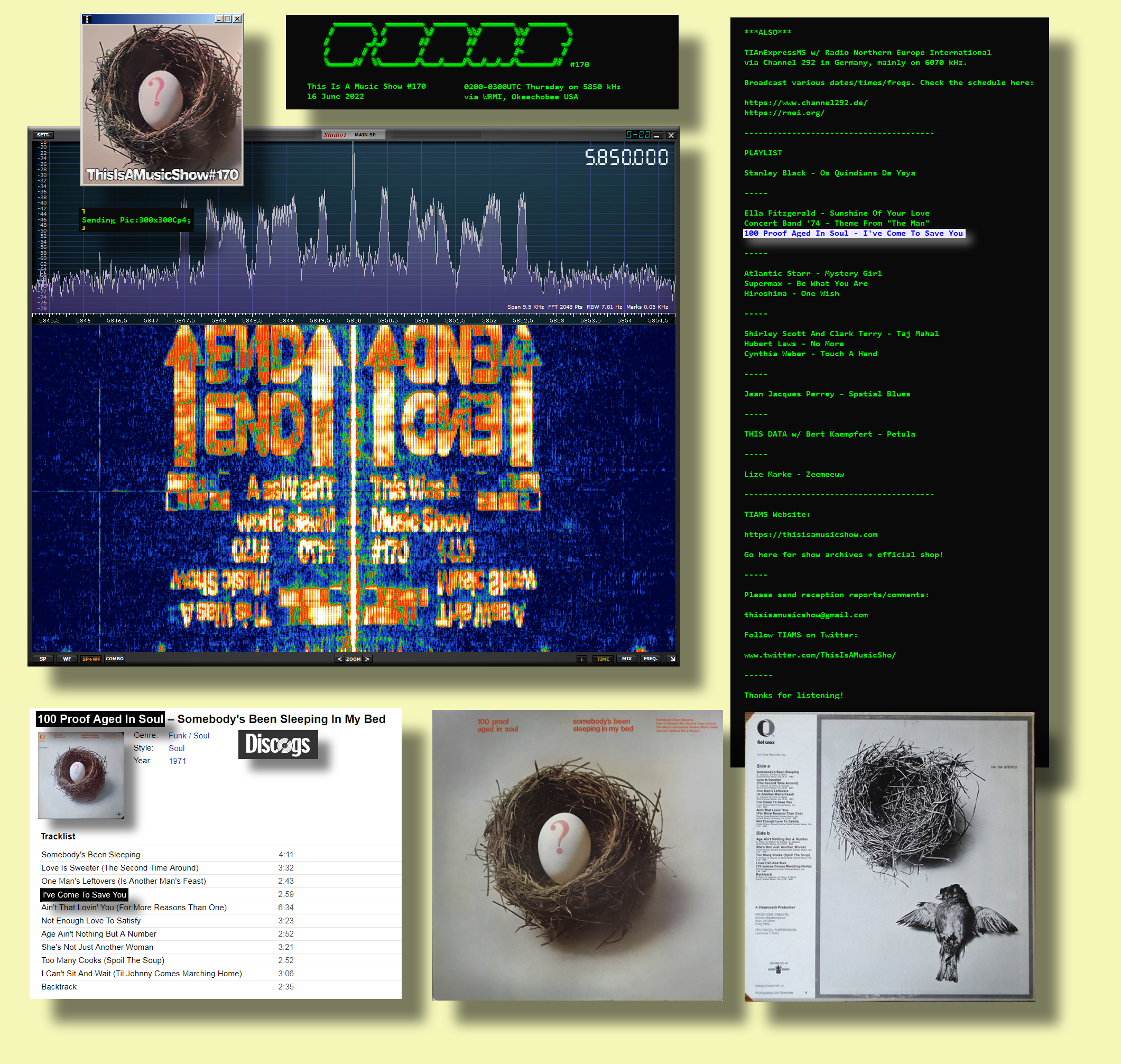
RSID: <<2022-06-16T02:50Z
MFSK-64 @
5850000+1500>>
This Is A Music Show #170
16 June 2022
0200-0300UTC Thursday on 5850 kHz
via WRMI, Okeechobee USA
***ALSO***
TIAnExpressMS w/ Radio Northern Europe International
via Channel 292 in Germany, mainly on 6070 kHz.
Broadcast various dates/times/freqs. Check the schedule here:
https://www.channel292.de/
https://rnei.org/
----------------------------------------
PLAYLIST
Stanley Black - Os Quindiuns De Yaya
-----
Ella Fitzgerald - Sunshine Of Your Love
Concert Band '74 - Theme From "The Man"
100 Proof Aged In Soul - I've Come To Save You
-----
Atlantic Starr - Mystery Girl
Supermax - Be What You Are
Hiroshima - One Wish
-----
Shirley Scott And Clark Terry - Taj Mahal
Hubert Laws - No More
Cynthia Weber - Touch A Hand
-----
Jean Jacques Perrey - Spatial Blues
-----
THIS DATA w/ Bert Kaempfert - Petula
-----
Lize Marke - Zeemeeuw
----------------------------------------
TIAMS Website:
https://thisisamusicshow.com
Go here for show archives + official shop!
-----
Please send reception reports/comments:
thisisamusicshow@gmail.com
Follow TIAMS on Twitter:
www.twitter.com/ThisIsAMusicSho/
------
Thanks for listening!
--YOUR HOST--
EOM
RSID: <<2022-06-16T02:52Z
MFSK-64 @
5850000+1500>>
Sending Pic:300x300Cp4;

https://www.discogs.com/master/164028-100-Proof-Aged-In-Soul-Somebodys-Been-Sleeping-In-My-Bed
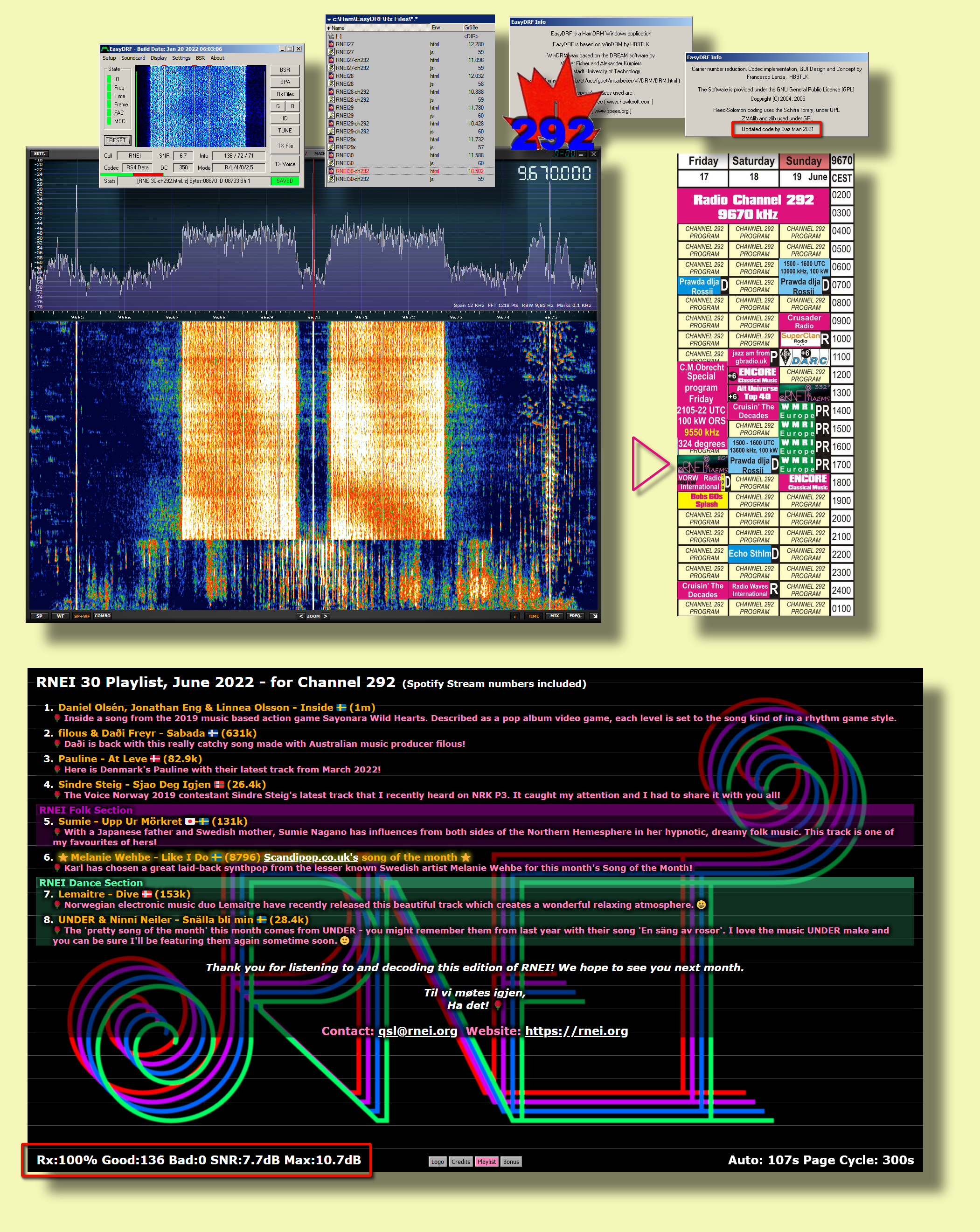
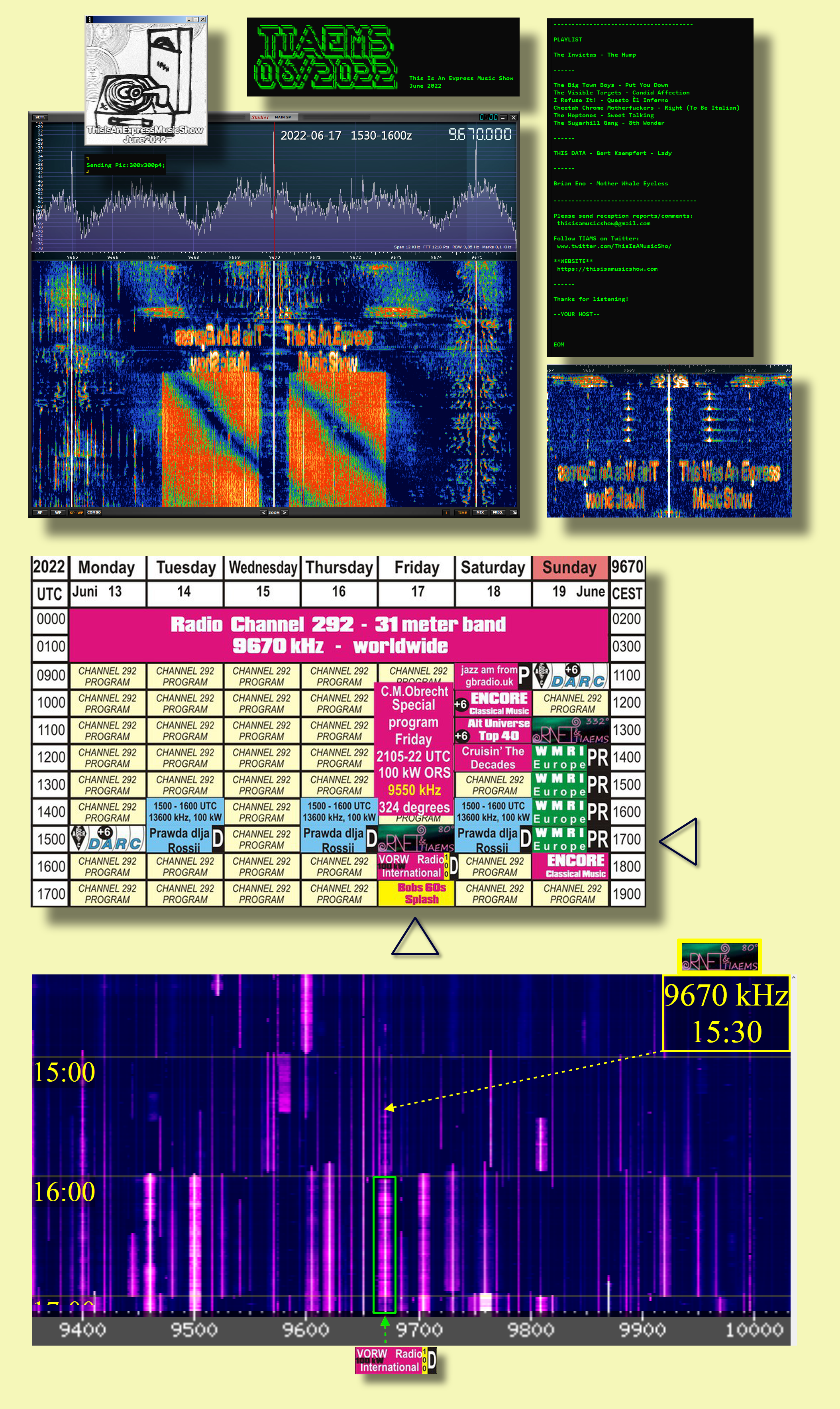
RSID: <<2022-06-17T15:51Z
MFSK-64 @
9670000+1500>>

This Is An Express Music Show
June 2022
---------------------------------------
PLAYLIST
The Invictas - The Hump
------
The Big Town Boys - Put You Down
The Visible Targets - Candid Affection
I Refuse It! - Questo Èl Inferno
Cheetah Chrome Motherfuckers - Right (To Be Italian)
The Heptones - Sweet Talking
The Sugarhill Gang - 8th Wonder
------
THIS DATA - Bert Kaempfert - Lady
------
Brian Eno - Mother Whale Eyeless
----------------------------------------
Please send reception reports/comments:
thisisamusicshow@gmail.com
Follow TIAMS on Twitter:
www.twitter.com/ThisIsAMusicSho/
**WEBSITE**
https://thisisamusicshow.com
------
Thanks for listening!
--YOUR HOST--
EOM
Sending Pic:300x300p4;
